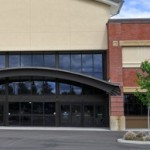Properly Insuring Commercial Property

By: Mary Thompson, Capstone President, February 23, 2015
Property insurance is one of the first types of insurance a business or property owner needs to have in place. Property insurance protects a business’s physical property against loss or loss of its income-producing abilities. The basic commercial property insurance policy protects a business’s investment in the building itself. Additional coverage is needed to protect, fixtures, furniture, office equipment, inventory and the supplies that are stored either at the business location or off-site. Even if a business doesn’t own the building they do business in the business still needs to insure the contents.
Business Property Insurance for Property Owners
Owning commercial property is much like owning a home. There are requirements to insure the property by the banks holding the loan or to simply protect the owner’s asset. Many commercial properties require a large investment of capital that is essential to protect.
To help determine the amount of property insurance needed, a commercial property owner must first know the lender’s limits. If a bank lender has given a loan on the property they will require that a certain level of insurance is in place within the loan agreement. If the requirement is not met the lender has the right to put in place its own insurance usually at a much higher rate than in the standard market. Most banks will only require that the property is insured to the amount of the loan, which is usually not enough in the case of total loss. It is a common misconception that a building only needs to be insured to the amount required by a bank holding a loan, but the property has more value then just the loan amount in most cases.
Every piece of property has two values, first is the amount it was purchased for and second is the cost to replace it if lost to fire, theft or other circumstances. So if the cost to replace the property is more then required by the bank, the owner is at risk for great loss. The solution to this is to insure the property to the replacement value instead of just the required limit set forth by the bank.
If a property does not have a loan and is owned out right by a business, or individual, it should still be insured to the amount it would cost to replace the building.
Business Property Insurance for Renters.
Although it may not be the renting businesses responsibility to maintain coverage for the building they still need to insure the equipment, improvements and supplies that the business has invested in. It is important to note that the commercial property insurance policy held by the building owner will not cover the tenant’s business’s property. Businesses renting space should ALWAYS have their own commercial renter’s policy in place. Having a commercial renter’s policy in place will protect the contents that belong to the tenant. Depending on the lease agreement the owner may even require that the tenant has coverage in place.
It is always smart to reevaluate a businesses property worth on an annual basis to be sure there isn’t a new property that requires more coverage. A commercial insurance agent can help a new or existing business establish proper commercial property coverage. Having an educated Insurance consultant is always helpful to businesses.
Categories
- Benefits Resources
- Bonding
- BOP
- Business Insurance
- Commercial Auto
- Commercial Property
- Company News
- Construction
- Crime Insurance
- Cyber Insurance
- Directors & Officers
- Employee Benefits
- Employment Practice Liability Insurance
- Entertainment
- General Liability
- Health Insurance
- Healthcare
- Healthcare Reform
- Homeowners Insurance
- Hospitality
- Manufacturing
- Medical Malpractice
- Mining & Energy
- Nightclubs
- Personal Auto
- Personal Insurance
- Professional
- Restaurants
- Retail & Wholesale
- Risk Management Resources
- Safety Topics
- SBA Bonds
- Security
- Seminars
- Technology
- Tourism
- Transportation
- Uncategorized
- Workers Compensation
Archives
- May 2021
- November 2020
- October 2020
- September 2020
- August 2020
- July 2020
- June 2020
- May 2020
- November 2018
- September 2018
- August 2018
- May 2018
- April 2018
- March 2018
- February 2018
- January 2018
- December 2017
- November 2017
- October 2017
- September 2017
- August 2017
- July 2017
- June 2017
- May 2017
- April 2017
- March 2017
- February 2017
- January 2017
- October 2016
- September 2016
- August 2016
- July 2016
- June 2016
- May 2016
- April 2016
- March 2016
- February 2016
- January 2016
- December 2015
- November 2015
- October 2015
- September 2015
- August 2015
- July 2015
- June 2015
- May 2015
- April 2015
- March 2015
- February 2015
- January 2015
- December 2014
- November 2014
- October 2014
- September 2014
- August 2014
- July 2014
- June 2014
- May 2014
- April 2014
- March 2014
- February 2014
- January 2014
- December 2013
- November 2013
- October 2013
- September 2013
- August 2013
- July 2013
- June 2013
- February 2013
- November 2011
- October 2011
- September 2011
- July 2011
- June 2011
- March 2011
- November 2010
- October 2010
- September 2010
- April 2010
- February 2010
- November 2009
- October 2009
- November 2008
- August 2008


